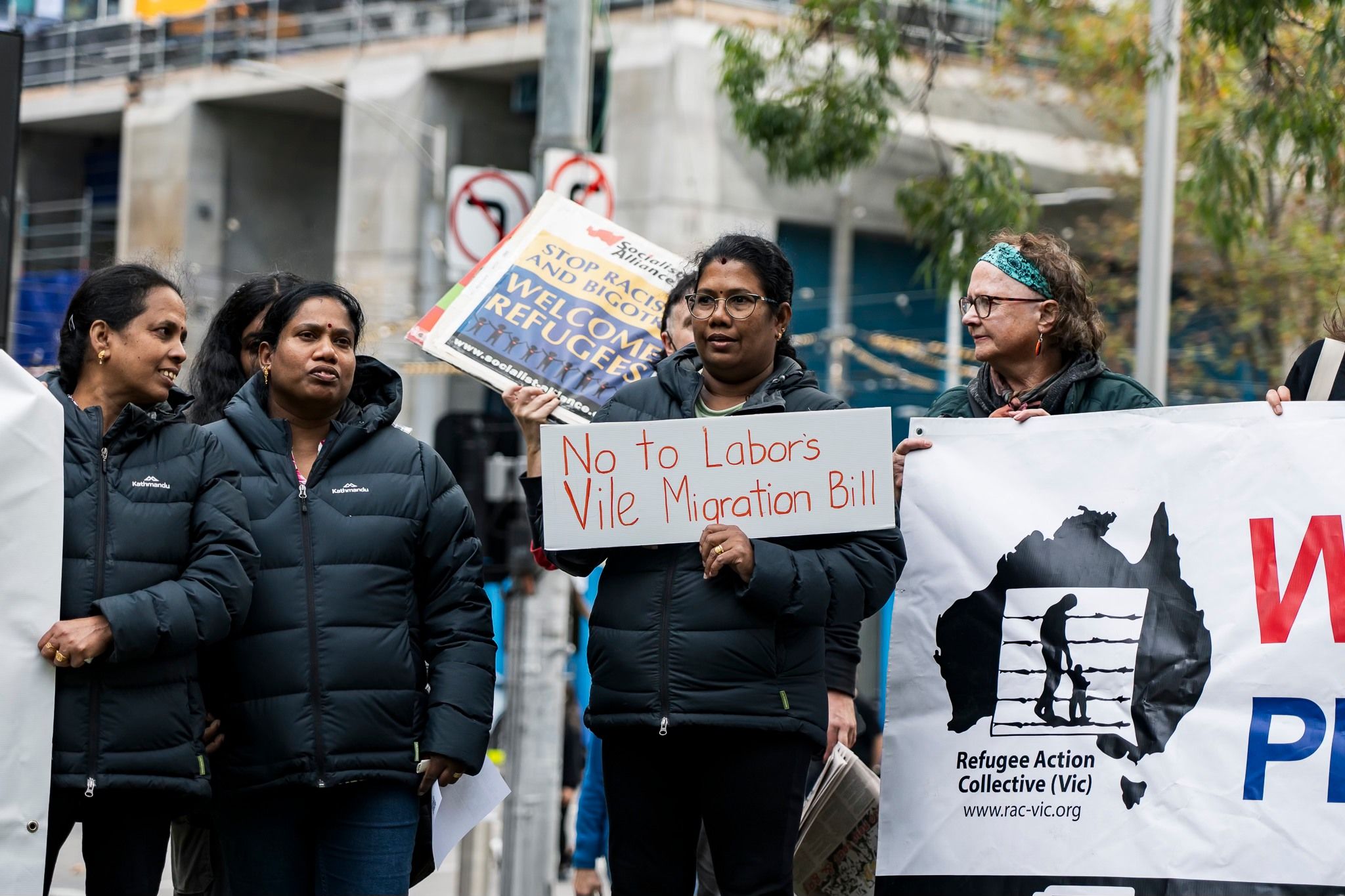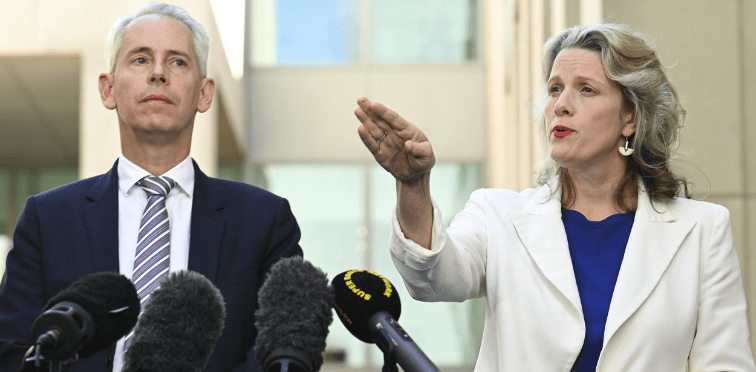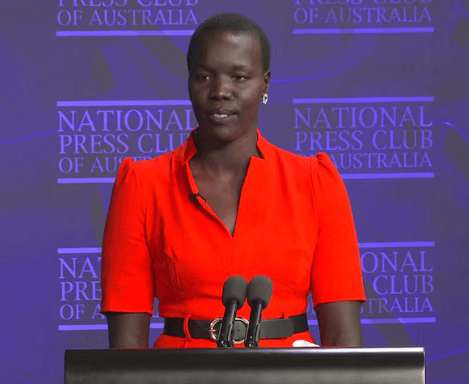Australia’s federal government has enacted sweeping anti-migration laws that critics say undermine international human rights obligations, escalate the mistreatment of refugees, and threaten the lives of tens of thousands of vulnerable people.
Passed late Thursday, the controversial legislation has drawn sharp criticism from grassroots organisations, legal experts, and refugee advocates who describe the measures as cruel, unnecessary, and politically motivated.
The laws—introduced through three bills: the Migration Amendment (Removal and Other Measures) Bill, the Migration Amendment Bill, and the Migration Amendment (Prohibiting Items in Immigration Detention Facilities) Bill—grant unprecedented powers to government authorities. These include the ability to deport refugees to third countries without sufficient safeguards, impose prison terms on those resisting deportation, and seize mobile phones from detainees in immigration centres.

The newly passed laws build on a broader legislative agenda targeting migration, with the government introducing a Bill in March granting the Minister for Immigration sweeping powers to compel cooperation with deportations.
This Bill also enables the Minister to bar entry to individuals from specific countries. Critics warn that this could pave the way for a broad travel ban affecting nations like Zimbabwe, South Sudan, Iran, Iraq, and Russia, which have historically resisted involuntary returns.
Greens Senator David Shoebridge previously condemned the legislation, describing it as “too harsh” and drawing parallels to former U.S. President Donald Trump’s controversial 2017 executive order, which barred people from six Muslim-majority countries, effectively shutting out refugees.
While Trump’s ban faced temporary injunctions, the U.S. Supreme Court upheld it in 2020, setting a precedent that some fear Australia may be mirroring.
A Step Backwards
Critics argue the laws mark a significant regression in Australia’s migration policy. Under the new measures, refugees can be sent to countries that are not signatories to the Refugee Convention, without guarantees against harm or refoulement—the forced return to nations where they may face persecution. Human rights advocates warn this violates international standards and Australia’s obligations under the convention.
The laws also expand the immigration minister’s discretionary powers, including the ability to revoke refugee status and ban visas from countries that refuse to accept deported individuals.
A Senate inquiry found that 80,000 noncitizens, including recognised refugees and long-term residents, could be subject to deportation under these laws. Those who resist removal face penalties of up to five years in prison.

Community Backlash
Refugee organisations across Australia have condemned the legislation, describing it as a betrayal of the nation’s values. Paul Power, Chief Executive Officer of the Refugee Council of Australia, said the measures represent a new low:
“The new laws are some of the most extreme that we have seen in over a decade and will have major consequences for refugee, migrant and multicultural communities. Having spent this week working alongside community members, legal experts, and refugee advocates, we have seen the outrage and disgust that many feel about these laws.”
The backlash has been particularly pronounced among grassroots refugee support groups, who say the laws fail to address the root causes of displacement and instead perpetuate a cycle of punishment and marginalisation.
Paul Dalzell, President of Rural Australians for Refugees, expressed deep concern over the politicisation of refugee issues:
“We are profoundly concerned by this politicising of refugee issues which has resulted in the most heartless refugee policy in three decades. The rhetoric of keeping people safe is being used disingenuously to support political interests rather than to put forward genuine solutions in a global displacement crisis. Our political leaders do not have social license to trample all over the human rights of vulnerable communities who have come to Australia for protection.”
Labor Government Under Fire
The Labor government, which passed the laws amid growing political pressure from the opposition, has faced accusations of abandoning its commitment to human rights. Critics say the government has pandered to fear-based narratives rather than standing firm against misinformation about community safety.
Ian Rintoul of the Refugee Action Coalition called the move a “race to the bottom”:
“This is shameful politicking with Labor playing the refugee card in the hope of gaining an electoral advantage at the expense of refugees. Instead of standing up to Dutton’s scaremongering about community safety, Labor is trashing human rights in a race to the bottom with Dutton. Labor should have ended indefinite detention when it was elected in 2022 instead of leaving it to the High Court. Labor likes to claim it is cleaning up the Liberal’s mess, but this is a mess entirely made by Labor.”
Fear and Stigma
The legislation has also been criticised for reinforcing discriminatory double standards. Refugee advocates argue the laws play into harmful stereotypes that portray noncitizens as a danger to public safety.
Marie Hapke, of the Australian Refugee Action Network, highlighted the disparity between how noncitizens and Australian citizens are treated:
“Australian citizens are released from prisons every day with supports and conditions to ensure community safety. This legislation plays into the fearmongering towards non-citizens who have committed offences. It provides unnecessary powers to send non-citizens, including refugees, to places where they are likely to be in danger and have no prospects for safe resettlement.”
Human Rights at Risk
The new laws also extend the government’s authority to control detainees in immigration facilities, including the ability to confiscate phones and other personal items. Rights groups warn this could lead to blanket bans that further isolate detainees from legal and emotional support.
Human Rights Watch and other organisations have labelled the laws a gross violation of international human rights standards, particularly the principle of non-refoulement, which prohibits returning individuals to countries where they face persecution.
A Crisis of Compassion
Grassroots organisations have called the laws a stark departure from Australia’s long-standing ethos of compassion and inclusion. Paul Power said the government’s actions highlight a disconnect between policy direction and public sentiment:
“Grassroots refugee support organisations representing hundreds of communities and thousands of supporters across Australia expressed dismay at the Labor Government’s unnecessary cruelty, demonstrating a cavernous disconnect between policy direction and the Australian spirit of compassion and welcome.”
Overall
Australia’s harsh new anti-migration laws have sparked a wave of outrage, with advocates calling on the government to rethink its approach. Critics argue the measures perpetuate a cycle of fear, discrimination, and harm, undermining Australia’s reputation as a nation that values fairness and human rights.
As the global displacement crisis worsens, experts warn that punitive policies will do little to address the root causes of migration, leaving vulnerable communities to bear the brunt of political decisions.

